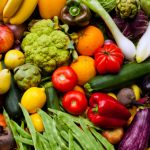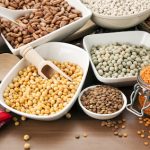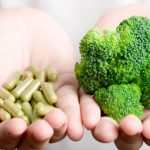Got the Big 4 down? Congratulations, you are no longer 1 in 2 or 1 in 3!
Still not satisfied with your risk level? Good, we’re not either. Here are 11 more recommendations to consider for further lowering your risk of cancer.
 1 – Shed those extra pounds.
1 – Shed those extra pounds.
Being overweight is one of the main risk factors for uterine, colon, breast, esophageal and kidney cancers. Both ovarian and pancreatic cancers have also been linked to excess weight. “When you’re overweight by any amount, you’re absolutely increasing your cancer risk,” said Curtis Miyamoto, M.D., professor and chair of radiation oncology at Temple University Hospital. If you are overweight or obese, losing weight will likely reduce your cancer risk.
– Prevent Cancer Foundation
http://preventcancer.org
 2 – Listen to your mom, lather on the SPF.
2 – Listen to your mom, lather on the SPF.
Skin cancer is the most common and most preventable of cancers. “The most important thing you can do is limit sun exposure and protect your head and neck, where most skin cancers appear, with a sunscreen that blocks UVA and UVB radiation,” said Darrell Rigel, M.D., professor of dermatology at New York University School of Medicine.
– Prevent Cancer Foundation
http://preventcancer.org
 3 – Hey meat eater! Keep an eye on your intake.
3 – Hey meat eater! Keep an eye on your intake.
To reduce your cancer risk, eat no more than 18 oz. (cooked weight) per week of red meats like beef, pork and lamb, and avoid processed meat such as ham, bacon, salami, hot dogs and sausages. When meat is preserved by smoking, curing or salting, or by the addition of preservatives, cancer-causing substances (carcinogens) can be formed. These substances can damage cells in the body, leading to the development of cancer.
– American Institute for Cancer Research
http://www.aicr.org
 4 – Add color!
4 – Add color!
OSU recommends more than just scarlet and grey. A recent study found that anthocyanins – the compounds that give fruits and veggies intense red, purple or blue hues – may slow or prevent the growth of color cancer. “Anthocyanins are not absorbed efficiently into the bloodstream,” said study author Monica Giusti, Ph.D., assistant professor of food science at Ohio State University, “so they remain in the gastrointestinal tract, where they interact with the tissues.” Try working more colorful fruits and vegetables into your diet.
– Prevent Cancer Foundation
http://preventcancer.org
 5 – Beans, beans, the magical fruit…
5 – Beans, beans, the magical fruit…
Eat more of a variety of vegetables, fruits, whole grains and legumes such as beans. Basing our diets on plant foods (like vegetables, fruits, whole grains and legumes such as beans), which contain fiber and other nutrients, can reduce our risk of cancer. For good health, AICR recommends that we base all of our meals on plant foods. When preparing a meal, aim to fill at least two-thirds of your plate with vegetables, fruits, whole grains and beans.
Research shows that vegetables and fruits probably protect against a range of cancers, including mouth, pharynx, larynx, esophagus, stomach, lung, pancreas and prostate. There are many reasons why vegetables and fruits may protect against cancer. As well as containing vitamins and minerals, which help keep the body healthy and strengthen our immune system, they are good sources of substances like phytochemicals. These are biologically active compounds, which can help to protect cells in the body from damage that can lead to cancer.
– Prevent Cancer Foundation
http://preventcancer.org
 6 – Sugar… Not So Sweet.
6 – Sugar… Not So Sweet.
Choosing healthy foods and drinks instead of those that are high in refined carbohydrates and often in added sugar and fat (energy-dense foods) can help us avoid overweight and obesity and thereby reduce our cancer risk.
Sugar drinks and weight gain: The expert report found that regularly consuming sugary drinks contributes to weight gain. These drinks are easy to drink in large quantities but don’t make us feel full, even though they are quite high in calories. Sugary drinks include: soft drinks like colas and juice flavored drinks. We should try to avoid these drinks. Water is the best alternative. Unsweetened tea and coffee are also healthy options. Natural fruit juice counts as one of our recommended 5 or more daily portions of vegetables and fruits, but it does contain a lot of sugar. It’s best not to drink more than one glass a day.
– American Institute for Cancer Research
http://www.aicr.org
From 60 Minutes special with Dr. Sanjay Gupta: Is Sugar Toxic? And other scientific work shows that sugar could also be helping some cancer tumors to grow because sugar stimulates the production of the hormone insulin. Nearly a third of common cancers such as some breast and colon cancers, contain insulin receptors that eventually signal the tumor to consume glucose. Lewis Cantley, a Harvard professor and head of the Beth Israel Deaconess Cancer Center, says some of those cancers have learned to adapt to an insulin-rich environment. “They have evolved the ability to hijack that flow of glucose that’s going by in the bloodstream into the tumor itself.”
– CBS News
http://www.cbsnews.com/8301-18560_162-57407128/preview-is-sugar-toxic
 7 – Limit Alcohol.
7 – Limit Alcohol.
Drinking alcohol in excess is associated with an increased risk of a number of cancers including liver cancer and colon cancer. Generally accepted limits are one drink per day for women and two drinks per day for men.
– Prevent Cancer Foundation
http://preventcancer.org
 8 – Breastfeed.
8 – Breastfeed.
Attention all mothers-to-be! The longer you breastfeed your baby the greater your breast cancer risk is reduced, according to a study published in the July 20, 2002 issue of The Lancet.
– Prevent Cancer Foundation
http://preventcancer.org
It is best for mothers to breastfed exclusively for up to 6 months and then add other liquids and foods.
– American Institute for Cancer Research
http://www.aicr.org
 9 – Don’t Be Salty.
9 – Don’t Be Salty.
Consuming too much salt can be harmful to our health, increasing our risk of stomach cancer as well as high blood pressure. Our daily intake of salt should be less than 2,400 milligrams. We actually need much less than this. Most people in the United States currently consume more than 2,400 mg, but there are simple ways to cut down on our intake.
Most of the sale in our diets comes from processed foods. We are not always aware that these foods are high in salt because they may not taste “salty,” so make sure to read the sodium content on the Nutrition Facts label. Watch out for breakfast cereals, bread, frozen meals, pizza and chips. Also, check the amount of sodium in canned products, such as soups and sauces, and avoid processed meats. Event sweet foods like cookies can contain high levels of salt.
– American Institute for Cancer Research
http://www.aicr.org
 10 – There’s No Magic Pill.
10 – There’s No Magic Pill.
To reduce your risk of cancer, choose a balanced diet with a variety of foods rather than taking supplements. The expert report (AICR) found strong evidence that high-dose supplements of some nutrients can affect the risk of different cancers. The panel judged that in general, the best source of nourishment is food and drink, not dietary supplements. Nutrient-rich whole foods contain substances that are necessary for good health – like fiber, vitamins, minerals and phytochemicals.
Some studies have shown that supplements can upset the balance of nutrients in the body. More research needs to be done, but this is one way that they might affect our risk of cancer.
– American Institute for Cancer Research
http://www.aicr.org
 11 – I’m a survivor! Prevention and Survivorship.
11 – I’m a survivor! Prevention and Survivorship.
Anyone who has received a diagnosis of cancer should receive specialized nutritional advice from an appropriately trained professional. Once treatment has been completed, if you are able to do so (and unless otherwise advised), aim to follow our cancer prevention recommendations for diet, physical activity and healthy weight maintenance.
There is growing evidence that physical activity and other measures that help us to maintain a healthy weight, such as a balanced diet, may help to prevent cancer recurrence, particularly for breast cancer. However, the evidence is not yet clear enough to be able to make any specific recommendations for cancer survivors in general, or for those who are survivors of any specific form of cancer.
– American Institute for Cancer Research
http://www.aicr.org


